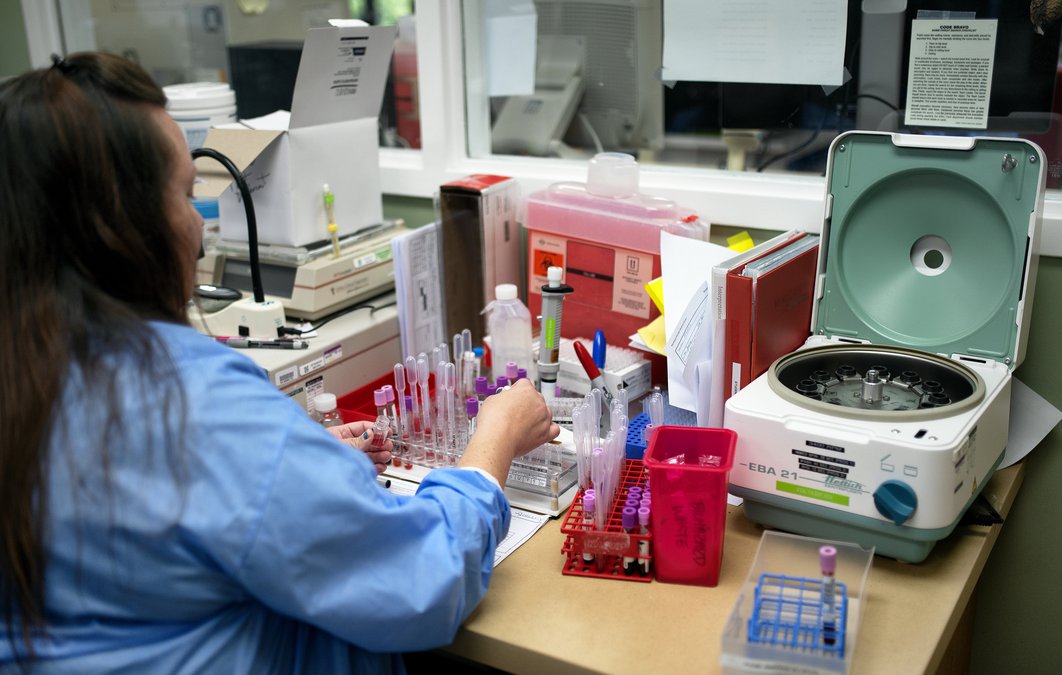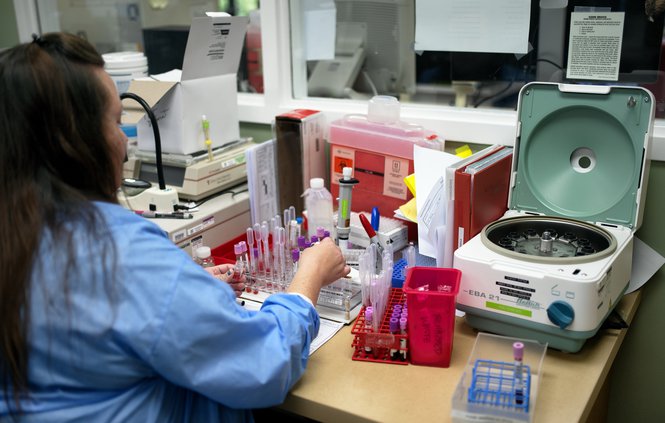Northeast Georgia Medical Center has not been immune to the effects of a nationwide blood supply shortage, as officials consider possibly postponing elective surgeries.
Dr. Joseph Conway, NGMC’s medical director of laboratory services, said Monday, June 14, that the hospital’s supply was 58 O-positive red blood cell units.
“We get concerned when it’s below 68 (units),” Conway said. “… We like to keep 120 to 130 (units).”
Conway said the American Red Cross has informed them it might take three months to get back to a comfortable level of supply.
“Usually, we may have shortages for a week or two that are event-driven, but three months is a long time for us to be (at) this type of critical shortage,” Conway said.
Though their supply has remained stable in the 50s through the past weekend, doctors are concerned about the possibility of traumatic events wiping out those units.
“We’re a Level II trauma center, so if we got a series of one or two serious traumas, we could be wiped out pretty quickly,” Conway said.
Types O-positive and O-negative are most needed.
“This is a very, very urgent situation, and we are looking at all the options including looking at postponing elective surgeries,” said Dr. Deepak Aggarwal, Northeast Georgia Health System chief of medical staff.
How to donate
LifeSouth
When: Appointments available daily
Where: 1200 McEver Road Extension, Gainesville
More info: donors.lifesouth.org
American Red Cross drives
Gainesville Civic Center
When: 9:30 a.m. to 2:30 p.m. July 2, appointment needed
Where: 830 Green St. NE, Gainesville
Northeast Georgia Health System
Where: 743 Spring St., Gainesville
When: 11 a.m. to 3 p.m. July 15
More info: www.redcrossblood.org
Aggarwal said they are looking at surgeries that may lead to greater blood loss, but hospital officials are also examining other strategies to conserve blood.
“Sometimes providers will order multiple products at one time, so we’re restricting so they get one unit at a time for non-emergent situations,” Conway said. “… It’s to make sure patients get just what they need and that there’s no extra expiration of product, so we’re not wasting units.”
Aggarwal clarified that if the patient clinically needs the blood, they will receive it.
The Red Cross estimated in a news release that 20-40% of trauma deaths that occur after hospital admission involve massive hemorrhaging.
“In these dire circumstances, doctors may need hundreds of blood products, depending on the severity of the trauma, to help save a life,” the Red Cross said in a news release.
Aggarwal said there are many possible causes for the shortage, including a decreased number of donors in recent months and blood drives that were canceled due to the COVID-19 pandemic.
Supplying roughly 40% of the nation’s blood, the Red Cross said it was distributing “about 75,000 more blood products than expected over the past three months to meet demand.”
“Some hospitals are being forced to slow the pace of elective surgeries until the blood supply stabilizes, delaying crucial patient care,” said Chris Hrouda, president of Red Cross Biomedical Services, in a Red Cross news release regarding the blood supply shortage. “As we return to pre-pandemic activities and resume travel to visit loved ones, we want people to remember the needs of patients this summer and the power so many of us have to help save lives.”
NGHS officials are encouraging people to donate, and people interested in scheduling an appointment with the Red Cross can do so at redcrossblood.org. Drives scheduled for Tuesday, June 15, at University of North Georgia and June 24 at First Baptist Church of Gainesville were listed as full on the Red Cross’ website, but appointments were available for July 1 at Sterling on the Lake in Flowery Branch and July 2 at the Gainesville Civic Center.

